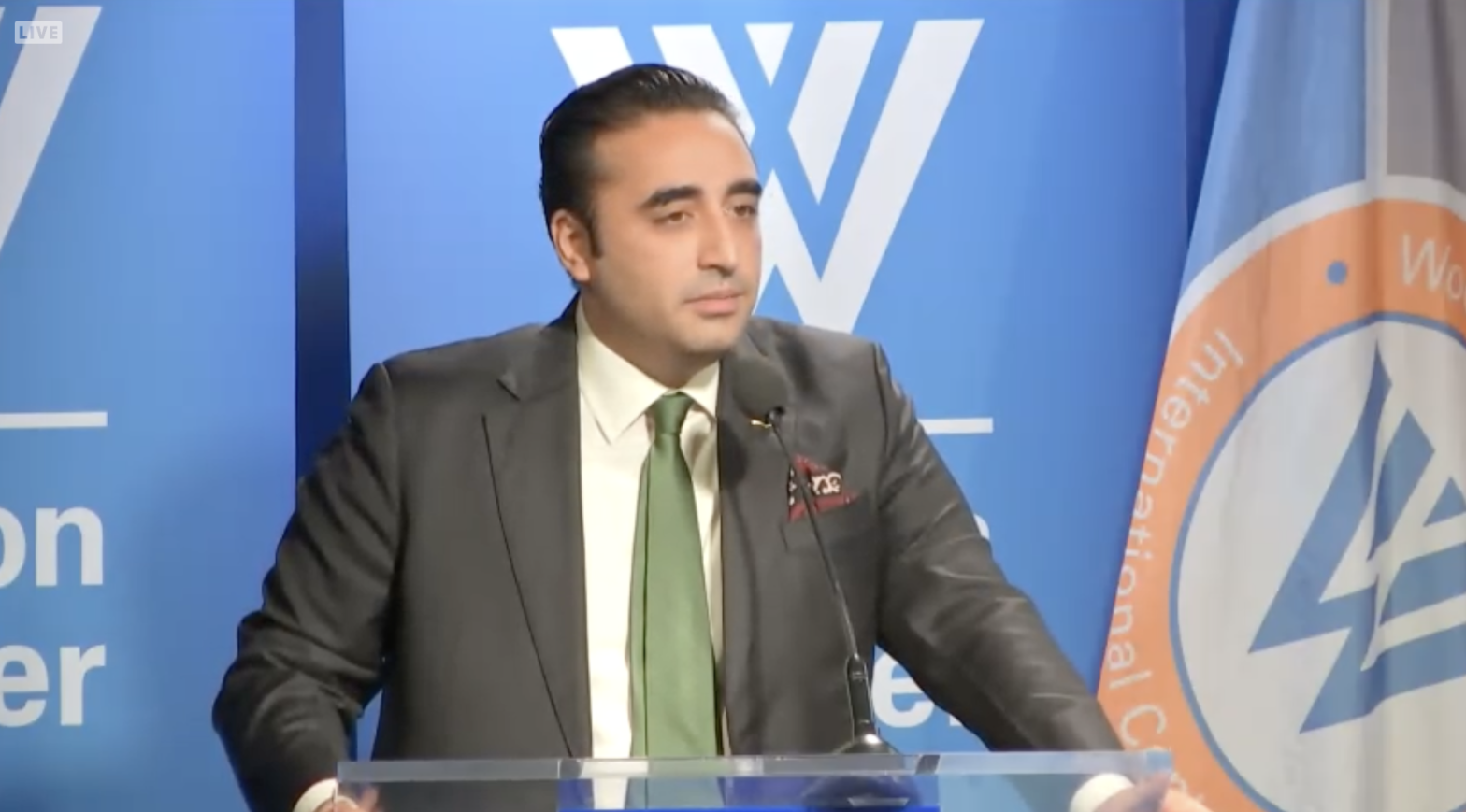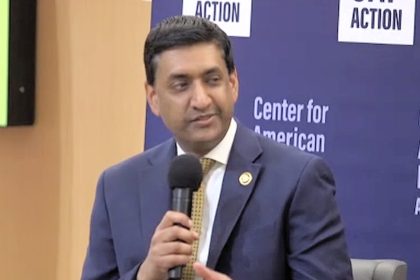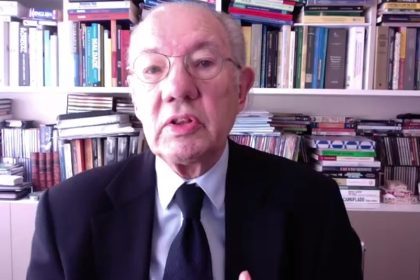Pakistani Foreign Minister Praises Diplomacy but Blames ‘Great Polluters’ for Climate Catastrophe

WASHINGTON — After what he called “encouraging” talks with Secretary of State Antony Blinken, Pakistani Foreign Minister Bilawal Bhutto Zardari dealt harsh chastisements and warnings for the United States at the Wilson Center on Tuesday morning.
Despite saying he was “pleasantly surprised and absolutely impressed” with America’s “new approach to foreign policy with Pakistan” — which he explained to be a shift away from a laser focus on Afghanistan and toward enhancing trade and economic cooperation — Zardari told attendees of the D.C.-based public policy organization that “there’s a positive aura around engagements so far, but the ground realities have absolutely changed.”
Zardari, the son of former prime minister of Pakistan Benazir Bhutto and former president of Pakistan Asif Ali Zardari, has been serving as 37th minister of Foreign Affairs since Pakistan’s new government took effect in April and pledged to strengthen relations with Washington and Western nations as well as to maintain strong ties with China and partners in the Middle East.
But many of the priorities on which Pakistan intended to concentrate may have altered since the nation became a frontline victim of the climate change crisis with devastating floods earlier this summer.
“By the time I was making my way to the U.S., the grand realities in Pakistan had fundamentally shifted,” Zardari said.
“We have to ask ourselves what history will say of the choices humanity made when faced with an existential threat,” he warned, citing climate catastrophe as the most pressing issue facing the world instead of “busying ourselves with the conflicts of man.”
“Everything else can wait. Every other conflict; every other dispute. There needs to be an awakening that this is the time for unity, the time for multilateralism. This is not the time for war.”
“From Gore to Greta” he said nations around the globe have been warned to focus on survival first, instead of what he decried as “an absolutely farcical series of events” around the world.
“Then there will be many other centuries for us to fight our wars.”
Political rifts with allies and lenders have contributed to Pakistan’s economic, social, and security deterioration through periods of unstable democratic government and military rule.
While Pakistan was in a perilous economic situation before the flood, the country had managed to avoid imminent default with a loan extension from the International Monetary Fund, but just as the bailout package was secured to stabilize Pakistan’s economy and debt payments, catastrophic floods created billions more in damage.
In what he called an “incredibly frustrating” situation, “all of those [IMF] figures might as well have been washed away with the floods as well.”
Now, not only is the nation dealing with slowly dissipating flood waters, but waterborne illnesses are spreading and at least four million acres of cash crops have been destroyed, resulting in an even greater health crisis, economic loss, and extensive food insecurity.
Zardari called it “truly an apocalyptic scene,” and doesn’t shy away from blaming the U.S. and other nations outright.
“Rather than the great powers we just say the great polluters,” Zardari quipped. “The thirty-three million people of Pakistan are paying with their lives… for global warming that they didn’t create.”
“It is us today. It could be anybody else tomorrow,” he warned. “The catastrophes that we are facing are truly that of a global making and surely the solutions are also global.”
His suggestion for redress is a Green Marshall Plan, or recovery program, similar to that which financed rebuilding efforts in Europe after World War II.
“I understand the Green Marshall Plan will not have any buyers,” he said, “[but] I will keep chipping away at [it] even though it may not materialize.”
Kate can be reached at [email protected]

























